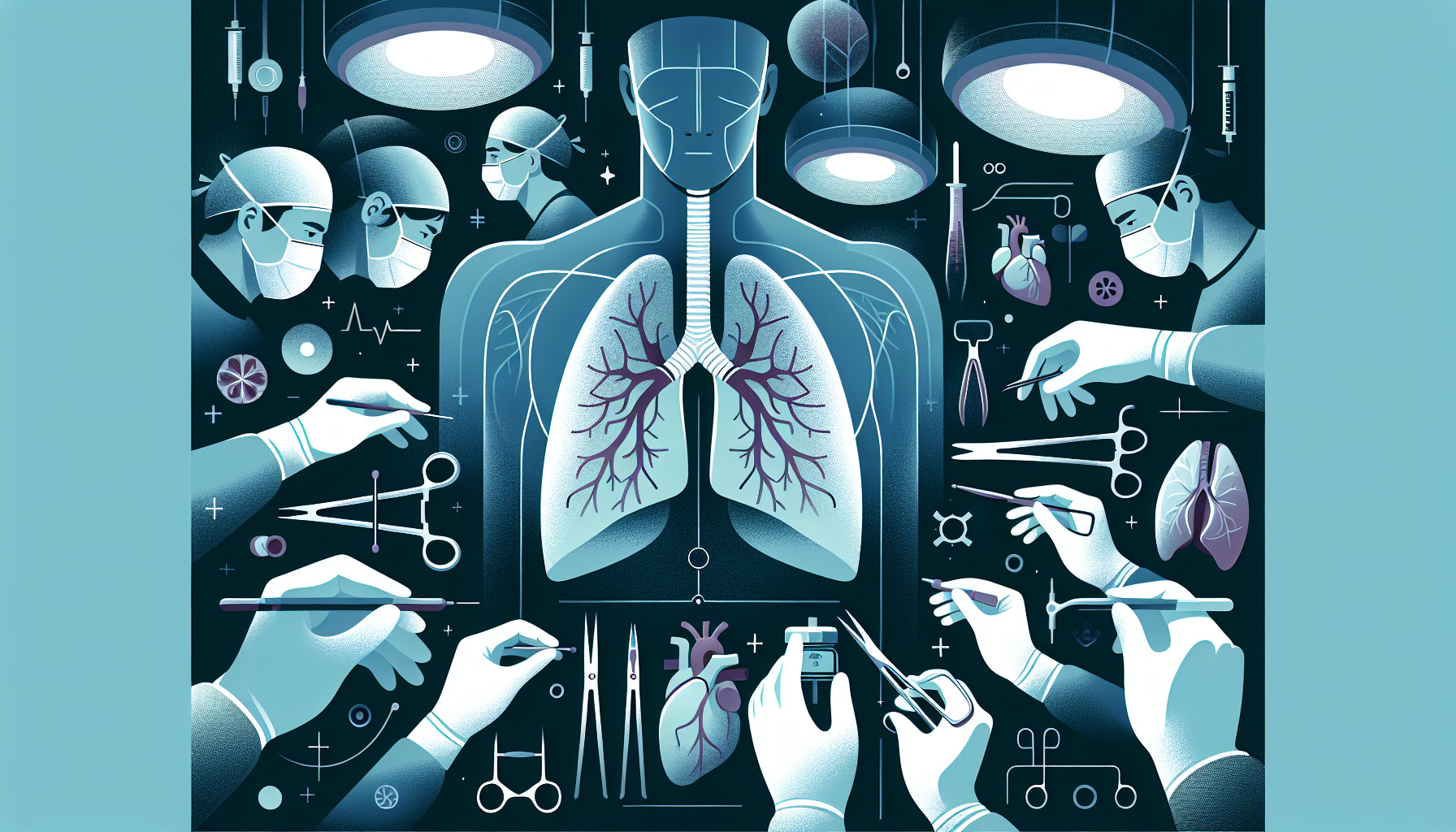Our Summary
This research paper is about the long-term effects of COVID-19 on the lung function of individuals who have had a lung transplant. The researchers looked at the results of a breathing test (called spirometry) of these patients at 3, 6, and 12 months after they first got infected with COVID-19. The study found that, overall, lung function decreased significantly three months after infection. However, the decrease was not significant at the six and twelve-month marks. This suggests that while COVID-19 does affect lung function in the short term for lung transplant recipients, the long-term impact may not be as severe.
FAQs
- What is the main focus of the research paper about lung transplants and COVID-19?
- What were the significant findings of the research on lung function in transplant patients after COVID-19 infection?
- Did the study find that COVID-19 has a long-term impact on lung function in transplant recipients?
Doctor’s Tip
A helpful tip a doctor may give to a patient who has had a lung transplant is to prioritize their overall health and well-being. This includes avoiding exposure to viruses and infections, maintaining a healthy lifestyle with regular exercise and a balanced diet, staying up to date on vaccinations, and following a prescribed medication regimen. It’s also important for patients to attend regular follow-up appointments with their healthcare team to monitor their lung function and overall health. By taking these steps, patients can help protect their new lungs and improve their long-term outcomes after a lung transplant.
Suitable For
Patients who are typically recommended for a lung transplant include those with end-stage lung disease, such as:
- Chronic obstructive pulmonary disease (COPD)
- Idiopathic pulmonary fibrosis
- Cystic fibrosis
- Alpha-1 antitrypsin deficiency
- Pulmonary hypertension
- Sarcoidosis
These patients often experience severe symptoms such as persistent cough, shortness of breath, fatigue, and difficulty breathing, despite medical treatment. Lung transplant may be recommended when other treatments have failed to improve their condition and their quality of life is significantly impacted.
Timeline
Timeline before lung transplant:
- Patient is diagnosed with a severe lung disease such as cystic fibrosis, COPD, pulmonary fibrosis, or pulmonary hypertension
- Patient undergoes extensive medical evaluations to determine if they are a candidate for a lung transplant
- Patient is placed on a waiting list for a suitable donor organ
- Patient experiences worsening symptoms of their lung disease, such as shortness of breath, coughing, fatigue, and limited mobility
- Patient may require supplemental oxygen or other medical interventions to manage their symptoms while waiting for a transplant
Timeline after lung transplant:
- Patient undergoes lung transplant surgery, which can take several hours to complete
- Patient is closely monitored in the intensive care unit (ICU) for a period of time after surgery
- Patient begins a rigorous rehabilitation program to help regain strength and lung function
- Patient takes immunosuppressant medications to prevent rejection of the donor organ
- Patient attends regular follow-up appointments with their transplant team to monitor their progress and adjust medications as needed
- Patient gradually resumes normal activities and enjoys improved quality of life with their new lung function
- Patient may still experience complications or rejection episodes that require medical intervention
- Patient continues to be at risk for infections and other complications due to their suppressed immune system
- Patient may need additional transplants or other medical interventions in the future as their new lung ages or if complications arise.
What to Ask Your Doctor
- What are the risks and benefits of undergoing a lung transplant for my specific condition?
- How long is the recovery process after a lung transplant, and what should I expect during this time?
- What medications will I need to take after the transplant, and what are the potential side effects?
- How often will I need to follow up with my transplant team after the surgery?
- What lifestyle changes will I need to make after a lung transplant to ensure the best outcome?
- How will having a lung transplant affect my ability to participate in physical activities and exercise?
- What signs or symptoms should I watch for that may indicate rejection or complications after the transplant?
- How will having a lung transplant affect my overall immune system and susceptibility to infections like COVID-19?
- Are there any specific precautions I should take to reduce my risk of developing severe complications from infections like COVID-19?
- How can I best care for my lungs and overall health in the long term post-transplant to minimize any potential long-term effects of COVID-19 or other respiratory illnesses?
Reference
Authors: Touilloux B, Papadimitriou-Olivgeris M, Bongard C, Mansouri N, Ioakeim F, Manuel O, Koutsokera A, Aubert JD, Casutt A. Journal: Transpl Infect Dis. 2023 Oct;25(5):e14151. doi: 10.1111/tid.14151. Epub 2023 Sep 25. PMID: 37746723
